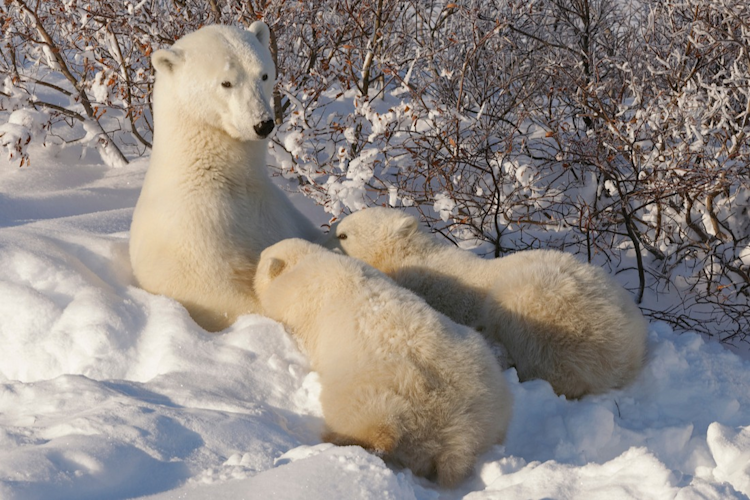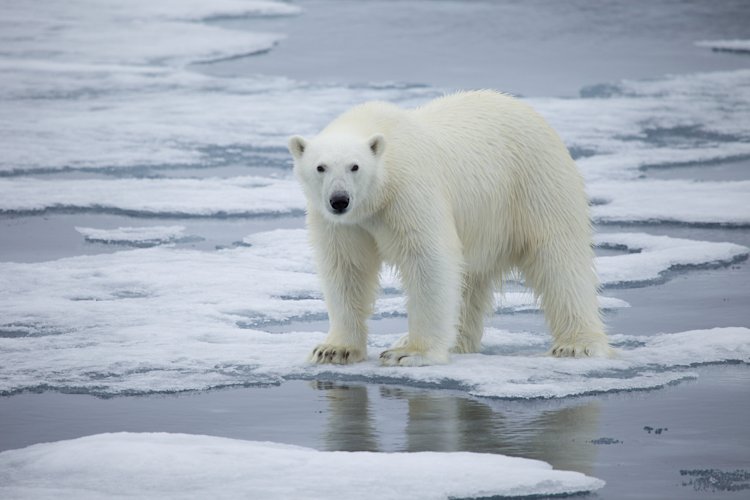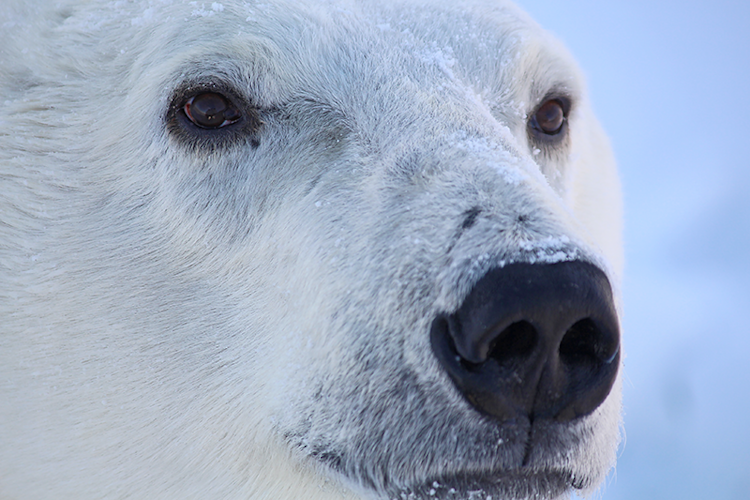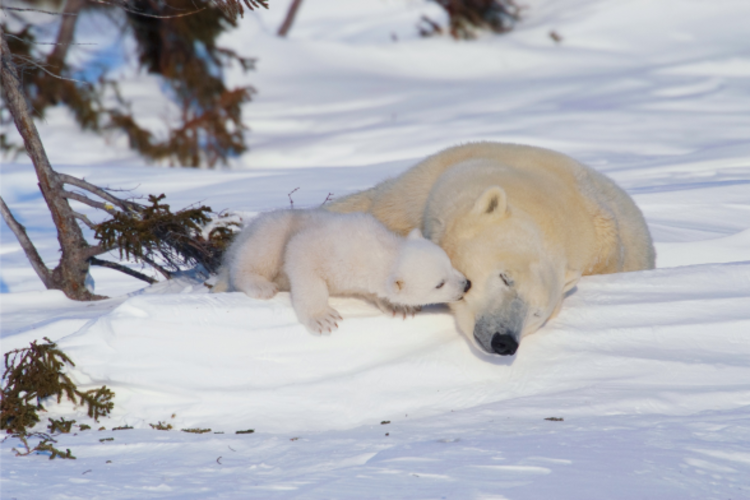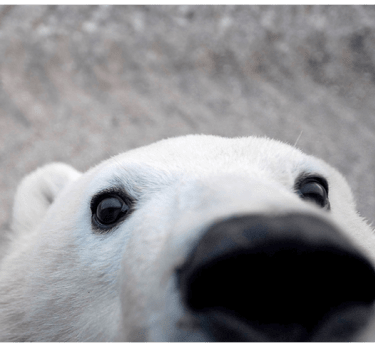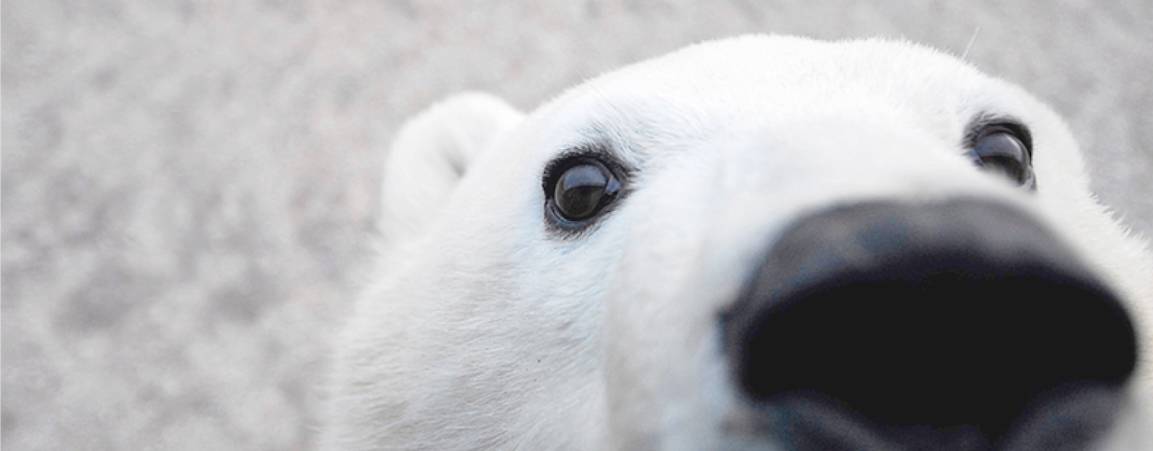International Polar Bear Day
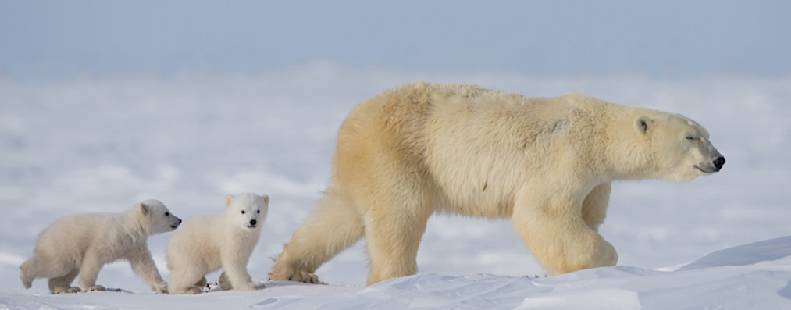
Take part in this special day by donating, tuning into our live events, starting a fundraiser, and more.
International Polar Bear Day is February 27!
We founded the day to coincide with the time period when polar bear moms and cubs are snug in their dens. As part of our celebration, we focus on the need to protect denning families across the Arctic.
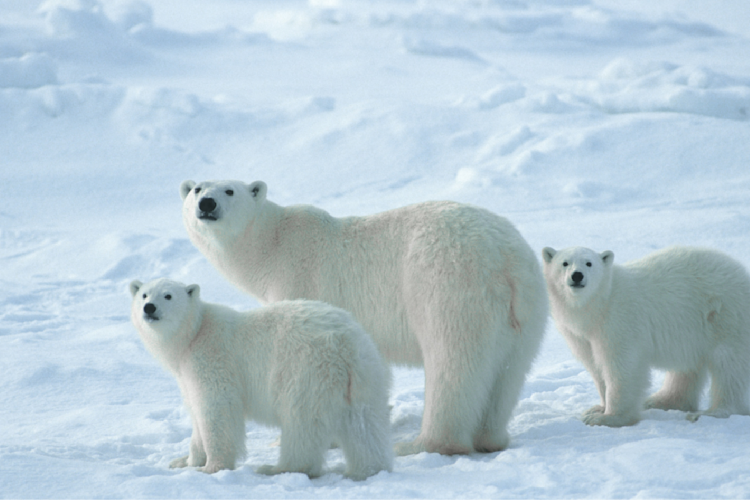
Photo: Daniel J. Cox
Let's Make an Impact
This year our focus is on raising funds to help protect moms and cubs, giving them the best possible chance of survival, while also supporting our other conservation efforts across the Arctic. On average, only about half of all cubs reach adulthood, with even lower survival rates in the most vulnerable populations.
Protecting Moms and Cubs
Right now, polar bear moms and their newborn cubs are snuggled together in snow dens across the Arctic.
Denning is the most vulnerable time in a polar bear’s life. And in a warming Arctic, where polar bears face enormous challenges, the survival of every single cub is critically important.
Polar bear cubs are born in winter dens hidden under the snow. At birth, they are blind, weigh little more than one pound, and have only a light layer of fur to protect them from the cold. Families remain in the den until spring when the cubs are finally large enough to survive the rigors of outside Arctic conditions.
Keeping moms and cubs safe while also addressing climate change is a critical part of our work on behalf of polar bears—and your support can make a real difference.
Learn More About the First Few Months of a Polar Bear's Life
Get Involved on Polar Bear Day
Tune in to our events. Watch a video dispatch from our maternal den study team in Svalbard, Norway, and learn about a new study that is publishing on International Polar Bear Day. Find the details here.
Donate to protect moms and cubs. From better understanding the denning period, to protecting moms and cubs from disturbances, and addressing the overarching threat of climate change, your gift will help polar bear families.
Learn about moms and cubs. Discover some of our favorite facts about polar bear families.
Send a free polar bear e-card. Help spread the word about International Polar Bear Day with a polar bear mom and cub e-card.
Watch a video about our den-detection project. Experience the Arctic cold and find out how we’re working to protect moms and cubs.
Photo: Meril Darees / Polar Bears International
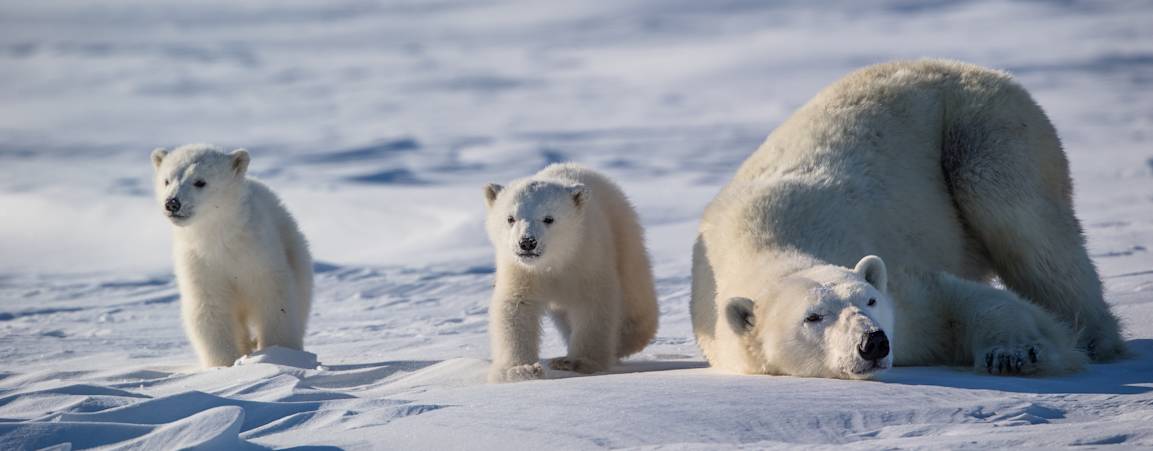
Check Out Our Toolkit
Interested in using your voice and platform to raise awareness? Our toolkit provides extra action tools, resources, and ways to get involved!
Did You Know?
Polar Bears International is a leader in polar bear den research, with a long history of projects and partners. The knowledge gained can make a real difference for polar bear families—providing a scientific framework to inform policy and help ensure critical protections.
Our long-term den emergence studies in Alaska and Svalbard add to our understanding of moms and cubs during this sensitive time period—providing data on their needs and vulnerabilities. Read our Q&A.
One of our studies focused on how denning families react to disturbances—data that directly relates to oil and gas development and other human activities. The findings underscore the importance of adequate buffer zones to shield moms and cubs from harm. Learn more about this research.
Another study found that current den-detection surveys, conducted by the oil and gas industry to locate and hence protect polar bear dens, have been missing over half of known dens. The high failure rate has implications for policy decisions in sensitive denning areas like the Arctic National Wildlife Refuge. Watch our video on the study and see our chief scientist’s testimony to Congress about the risks to moms and cubs from proposed drilling in the Arctic Refuge.
Our team is now researching a promising new den-detection method that could greatly improve our ability to locate dens under the snow, helping to identify and protect denning areas to ensure the safety of moms and cubs. Your support will help fund this critical research and other conservation efforts to give polar bear families a fighting chance.
Our partners in our Maternal Den Study in Svalbard include the San Diego Zoo Wildlife Alliance and the Norwegian Polar Institute. Our partners in our den-detection efforts include Brigham Young University, NORCE, and Simon Fraser University.
Learn More About Climate Change Threats
Explore Other Events


